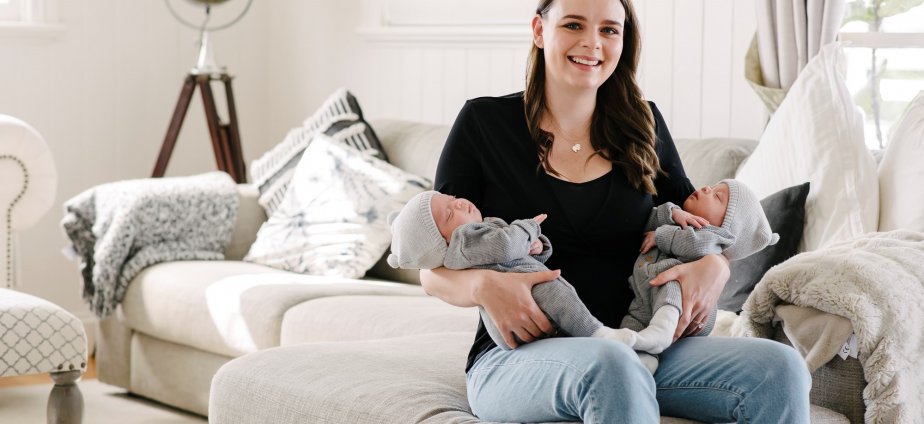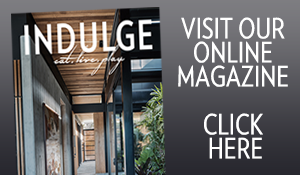They say there is nothing like first-hand experience and in the case of Isabelle Yates, the nursing student from the University of Southern Queensland was served a double helping. The 28-year old woman gave birth to identical twin boys in March – a one in 250 chance.
The pair were born prematurely, arriving more than two months early and each weighing less than two kilograms, but Isabelle’s training as a nursing student placed her in good stead to care for the high needs duo. “They were both so tiny,” Mrs Yates recalls. “Theodore was born first at 1400 grams, and Hugo wasn’t much bigger weighing just 300 grams more.”
The new mum has been studying nursing at the University of Southern Queensland since 2016. With graduation fast approaching, she is now looking to the future – and like everything in her life, has decided it is double or nothing with plans to study another degree. “I’d like to complete a Bachelor of Midwifery,” she said. “It’s a Graduate Entry program which means you have to be a Registered Nurse before you can enrol with a bachelor degree in nursing.
“I chose the University of Southern Queensland because it has one of the best midwifery programs in the country – and the highest graduate employability in Australia,” she said. Midwifery students train in the University’s state-of-the-art simulation laboratories. Designed to look like a real hospital ward, the simulation spaces give nursing and midwifery students the chance to perform a wide variety of clinical scenarios in a risk-free environment. Each laboratory includes five beds, five medium-fidelity mannequins, training supplies and equipment and cameras for recording and playback debriefing.
Head of Nursing and Midwifery at the University of Southern Queensland Professor Christine Neville said simulation training was an important part of the University’s nursing and midwifery programs. “Health care simulation provides a wealth of opportunities to challenge students to think critically and gain clinical skills while carrying out procedures in a controlled environment,” Professor Neville said. “Students can make mistakes and learn from them without compromising patient safety, but also build confidence before heading out into a real-life clinical setting.”
Readers also enjoyed our story about Athonika Skincare Founder









